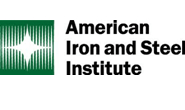Government/Policy

February 15, 2021
AISI Seeks Revocation of Certain Section 232 Exclusions
Written by Michael Cowden
The American Iron and Steel Institute (AISI) remains concerned that General Approved Exclusions (GAEs) to Section 232 tariffs and quotas could lead to a surge in imports, the head of the lobbying group said.
“This (GAEs) is not ending the entire Section 232 program by any means. But it has the potential to degrade the program–so we think it’s a serious concern,” AISI President and Chief Executive Officer Kevin Dempsey said in an interview with Steel Market Update.
![]() The AISI expressed its worries to the Trump administration in early January and officially reiterated its concerns to the Biden administration in a letter to the Commerce Department earlier this month.
The AISI expressed its worries to the Trump administration in early January and officially reiterated its concerns to the Biden administration in a letter to the Commerce Department earlier this month.
GAEs went into effect at the end of December. It is too early to say whether they have impacted trade flows to date. But there is the potential for more imports to come in free of Section 232 tariffs because of them—and so action is required, Dempsey said.
“What we are asking is for them (Commerce) to revoke the GAEs to stop allowing products to come in duty free,” he said. “They need a more formal process… They need to go through each one of them and make sure they are not allowing an exclusion that encompasses product that can be made by the domestic industry.”
Commerce has identified 108 product codes under the Harmonized Tariff Schedule (HTS) that could be imported into the U.S. free of Section 232 tariffs. Among that list are hot-rolled sheet and strip, cold-rolled sheet and strip, as well as coated flat-rolled steel. The AISI is seeking “immediate revocation” of those 108 GAEs pending a review process.
The problem with GAEs–despite some improvements in the language governing them–remains that they conflate specific exemption requests with entire HTS codes. The intention was to speed up the Section 232 exemption process, but that might not be the effect in practice, Dempsey said.
An exclusion request for a small volume of a proprietary grade not made by a U.S. mill is not a problem. “It’s another thing to say that everything that falls under the same HTS category as the proprietary product is now exempt,” Dempsey said. “They capture a lot more product.”
But not everyone shares the view that too many imports are a problem for a U.S. steel market characterized by high prices and limited supplies.
Steel Market Update’s average hot-rolled coil price stands at $1,200 per ton ($60/cwt), its highest reading ever and well above prices abroad.
Other market participants–including some producer sources–said more steel needs to be allowed into the U.S. market from abroad to avoid harming the competitiveness of downstream manufacturers.
“What people are missing is we kept all the steel jobs but lost stamping, tube and port jobs” as a result of Section 232, one industry source said.
And the Section 232 exclusion process is already so complicated that it can make selling steel from abroad impractical. A company seeking to bring foreign steel into the U.S. might struggle to quote a competitive price unless it is exempt from the tariff regime, he said.
But to get an exemption, an importer often must specify how many tons a customer requires. The problem: buyers are typically leery of committing to tons unless they know the price, the industry source said.
“You have to roll the dice. … You have to price it as if you have an exclusion in order to get the order,” he said.
By Michael Cowden, Michael@SteelMarketUpdate.com







